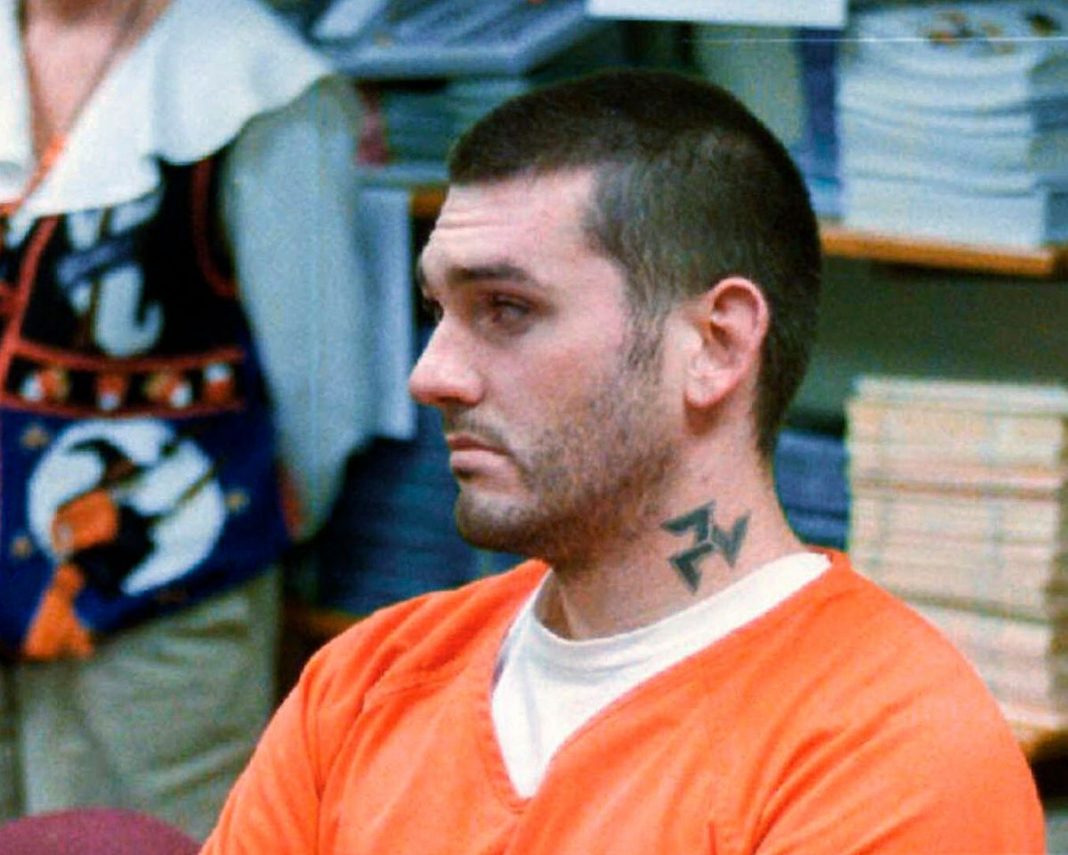A US appeals court has issued a ruling that would allow for the first federal execution in 17 years on Monday, pending a last-minute application to the Supreme Court.
“@Amazing_Maps: World Death Pealty Laws
Source:http://t.co/1BLXOxJRcT
– pic.twitter.com/TpUuYBhFyw” // US is in good company…— Wes Hargrove (@whargrove) February 23, 2014
President Donald Trump’s administration has scheduled three more executions in the coming months, saying it is acting in the interest of crime victims.
US to resume federal executions as racist is executed
Daniel Lee, a 47-year-old white supremacist, was convicted in 1999 of killing a gun dealer, his wife and her eight-year-old daughter in Arkansas.
He is scheduled to die Monday by lethal injection at Indiana’s Terre Haute prison.
Relatives of his victims — including Earlene Peterson, the grandmother of Lee’s youngest victim — have asked for the execution to be delayed because of the coronavirus pandemic.
Read more: Dissection of the idea of “Public Executions” and “Dignity”
But a temporary injunction by the Southern District of Indiana district court was lifted by the Court of Appeals for the Seventh Circuit on Sunday, clearing the way for the execution to go ahead.
The victims’ family will take their appeal “to the US Supreme Court in an effort to seek reversal,” their lawyer Baker Kurrus said in a statement Sunday.
They hope to delay the execution until travel to the prison is safe, he said.
The planning for executions is haphazard
“The federal government has put this family in the untenable position of choosing between their right to witness Danny Lee’s execution and their own health and safety,” Kurrus said.
It comes as the Bureau of Prisons said Sunday a member of Terre Haute prison staff had tested positive for the virus.
Most offences in the US are tried at the state level but the federal government takes up the most serious cases, such as terror attacks or racist crimes.
The last execution at federal level was in 2003.
Read more: Global executions at lowest level in a decade: Amnesty
In the last 45 years, only three people have been put to death by the federal government, including Timothy McVeigh, who was convicted of bombing a federal government building in 1995, killing 168 people, and executed in 2001.
“There’s no reason for anybody to be carrying out executions right now because of the pandemic,” said Robert Dunham, executive director of the Death Penalty Information Center, accusing Trump’s administration of “political use of the death penalty.”
Trump faces a tough election in November to secure a second term in office.
Peterson, the mother and grandmother of Lee’s victims, opposes the sentence and has asked the administration several times to grant him clemency.
A Trump supporter, she called on the president to intervene: “The scheduled execution of Danny Lee for the murder of my daughter and granddaughter is not what I want and would bring my family more pain.”
EU ‘strongly opposes’ resumption of US federal executions
Earlier, the European Union said that it “strongly opposes” the US decision to resume federal executions after 17 years, an EU spokesman said Friday.
The US government decided almost a year ago to resume the practice of federal executions, the last of which was carried out in 2003.
American courts approved the use of pentobarbital for lethal injections in June and officials hvae scheduled four executions in July and August.
“We call on the US administration to reconsider (this decision) and not to proceed with the federal executions scheduled to begin on 13 July,” said the spokesman for the EU foreign policy chief, Josep Borrell.
“This decision goes against a general trend in the United States and around the world to abolish the death penalty, by law or in practice,” the statement continued.
Read more: Public Hangings: Draconian or Necessary Evil
It said that the EU is firmly opposed to the death penalty “at all times and in all circumstances” and that it “will continue to work towards a universal abolition”.
The practice is “cruel, inhuman and degrading, incompatible with the inalienable right to life, which does not constitute an effective deterrent to criminal behaviour and is irreversible”.
.@EU "strongly opposes" US decision to restart federal executions.
“This decision runs counter to the overall trend in the United States and worldwide to abolish the death penalty, either by law or in practice."https://t.co/hSV8ShqfRN
— Washington Examiner (@dcexaminer) July 12, 2020
Most criminal cases in the United States are heard in state courts, but some are handled by federal prosecutors, such as hate crimes, some particularly serious crimes or those that take place on military installations or Native American reservations.
In the last 45 years, only three people have been executed at the federal level, including Timothy McVeigh in 2001, who was responsible for the Oklahoma City bombing that killed 168 people in 1995.
According to opinion polls, support for the death penalty has declined in recent years and is down to around 54 percent from 80 percent in the early 1990s.
Only a handful of states, mainly in the US south, still carry out executions. Twenty-two people were executed in 2019.
AFP with additional input by GVS News Desk














